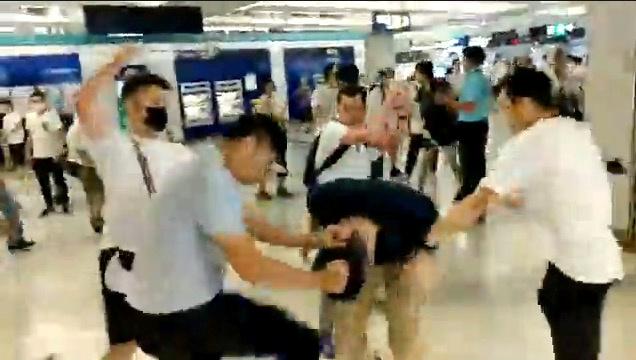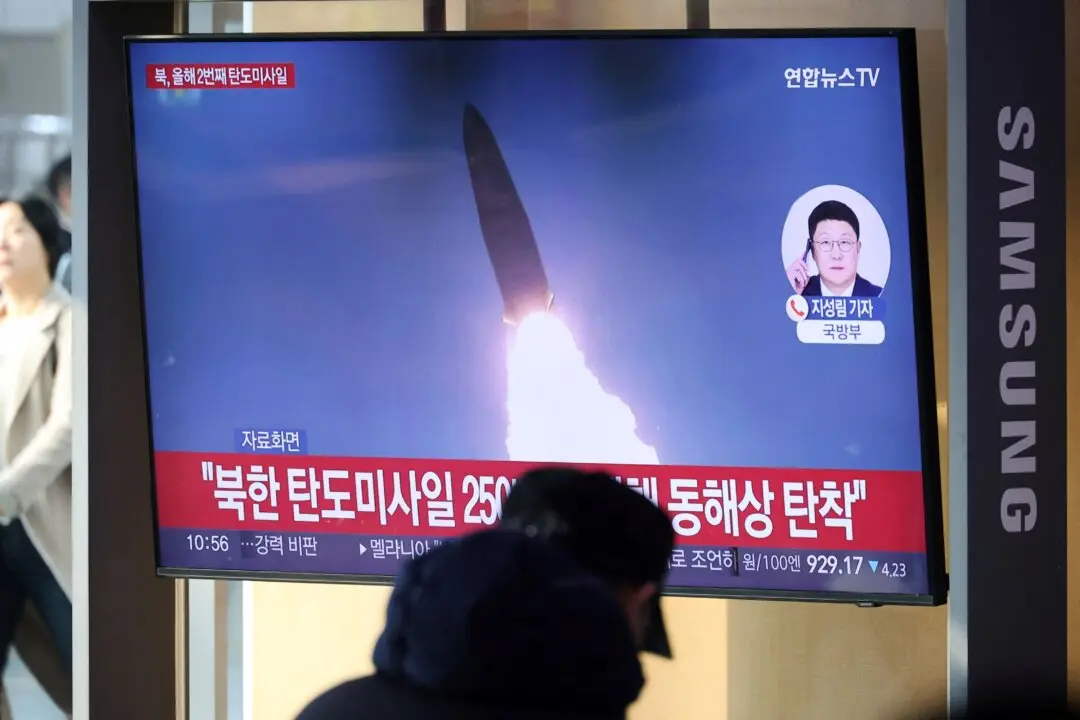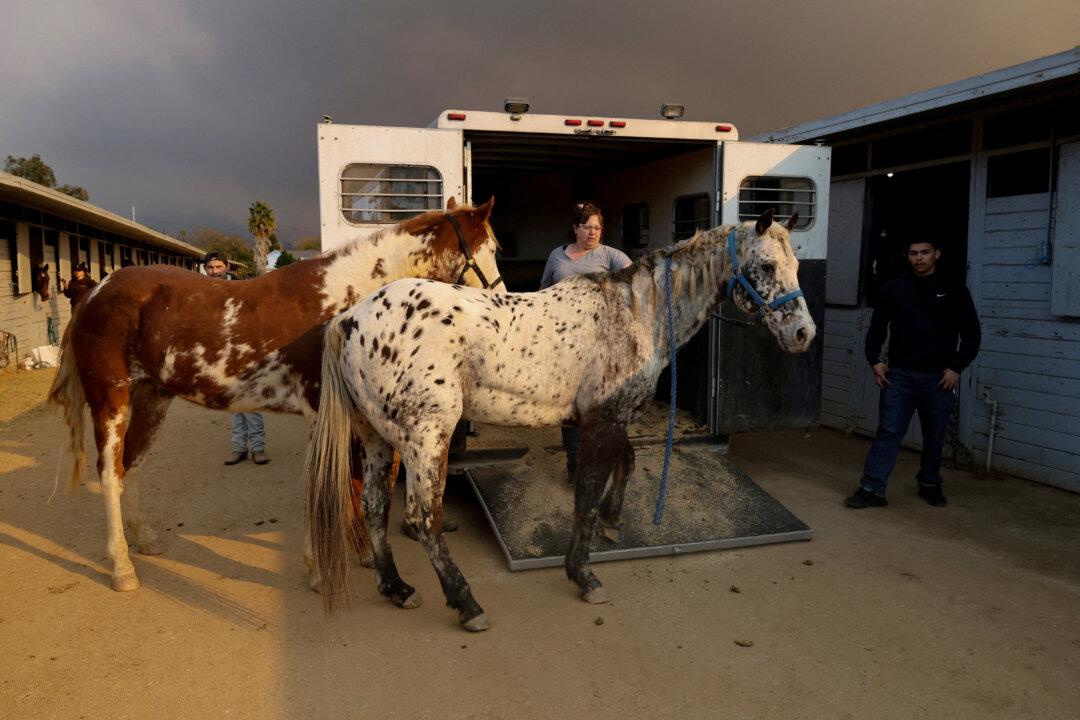HONG KONG—Hong Kong riot police fired tear gas late on Oct. 21 to disperse pro-democracy demonstrators gathered to commemorate the three-month anniversary of an assault by more than 100 men on protesters, commuters and journalists.
The clashes in the Yuen Long neighborhood came a day after widespread violence in which tens of thousands marched through Kowloon district.
Hong Kong has been battered by five months of huge and often violent protests over fears Beijing is tightening its grip on the territory, the worst political crisis since colonial ruler Britain handed it back to China in 1997.
Under a policy that deems marches illegal unless they have a police permit, riot police stopped around 100 protesters reaching the Yuen Long metro station in Hong Kong’s northwest, which was closed five hours early amid tight security.
Police ordered protesters to disperse, at one stage rushing them and detaining one person. Scuffles broke out between pro-Beijing supporters and protesters and angry residents emerged from apartments to jeer officers, calling them “black police.”

A police statement said police resorted to tear gas after some protesters hurled “hard objects” at them and vandalized bank facilities in the vicinity. It urged residents to stay indoors, keep windows closed and avoid local streets.
After a few hours most protesters had scattered but police remained on the streets in force, occasionally firing tear gas at small groups and chasing down individuals. A few masked protesters taunted police but quickly disappeared up side streets when officers approached.
July Mob Attack on Protesters
Protesters are angry that police did not act quickly enough to protect pro-democracy activists and commuters from the July 21 gang assault at the Yuen Long metro, and at what they say is a slow investigation into the incident.Police have arrested 34 people and charged six.
At the time some believed the men had been hired to attack the group. Some politicians and activists have linked Hong Kong’s shadowy network of triad criminal gangs to political intimidation and violence in recent years, sometimes against pro-democracy activists and critics of Beijing.

One of Monday’s protesters, a secondary school pupil, said he could not accept a call from the government to move on and wait for a report from the Independent Police Complaints Council into the Yuen Long attack.
“We can’t forget this, because I think that this is so horrible to all Hong Kong people, and this should not be moved on from until the criminals are caught and in the jails,” he said, without giving his name.
Yim, a 42-year-old social worker, said he was in Yuen Long station on the night of the July attack, adding it was important to continue to protest against such mob violence.
“There were many people filmed that night but they’ve only arrested six people so far ... we want an independent investigation and justice for this attack.”
Many in Hong Kong feel police have used excessive force against protesters and want an independent investigation into police actions.
Since the protests escalated in June, more than 2,600 people have been arrested, many under 18 years of age, while two people have been shot and many more injured.
Many people in Hong Kong are angry at what they see as mainland China’s attempts to limit the freedoms the city enjoys under the “one country, two systems” principle enshrined in its handover from Britain in 1997.
Protesters are demanding universal suffrage, an independent inquiry into alleged police brutality, amnesty for those charged, an end to labeling protesters as rioters, as well as the formal withdrawal of a China extradition bill that was the original trigger for the unrest.





